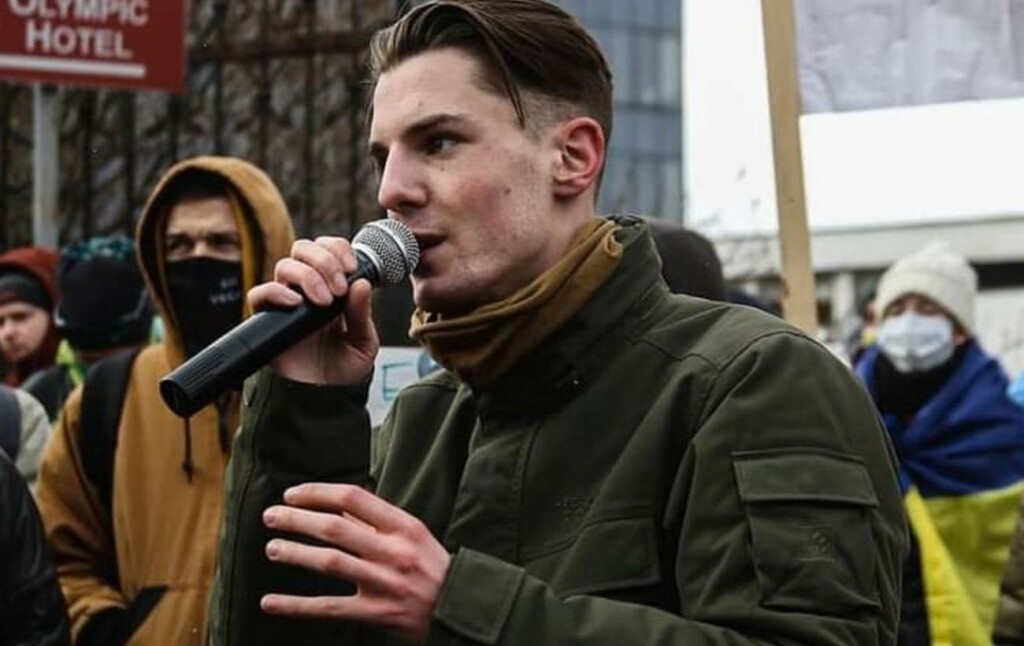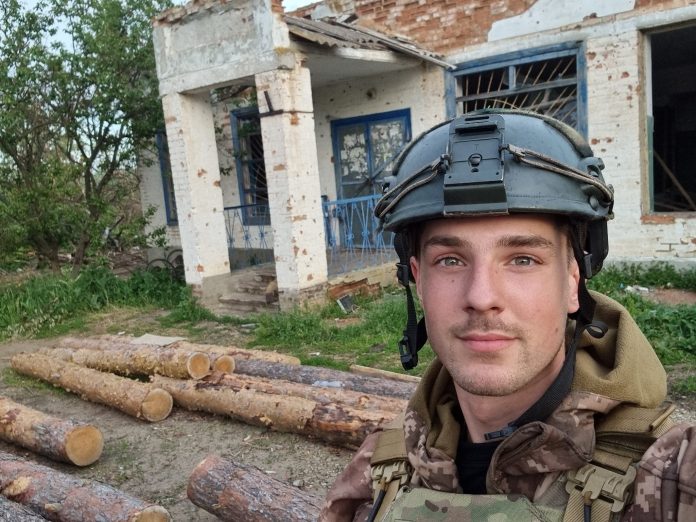Roman Ratushnyi, a former student activist and current prominent civil activist from Kyiv, Ukraine, and servicemember of the 93rd Mechanized Kholodnyi Yar Brigade, was killed fighting in Kharkiv region against Russian forces. Notably he participated in the Revolution of Dignity at the age of 16, and was a civil society activist. Organizing in Maidan square and facing the full brutality of the police at the beginning of the protests while he was a student. The Revolution of Dignity, or Euromaidan Revolution, occured when deadly clashes between protesters and the security forces in the Ukrainian capital Kyiv culminated in the ousting of elected Russian-aligned President Viktor Yanukovych and the overthrow of the Ukrainian government in 2014, these events included the Russian military intervention, the annexation of Crimea by Russia, and the creation of the self-proclaimed breakaway states of Donetsk and Luhansk. Roman fell in battle aged 24, a month before his 25th birthday. The official Twitter account of Ukraine’s Defence Intelligence made the announcement, which was followed by hundreds of tributes being paid. “93-strong military intelligence officer killed at the front, Roman Ratushny, a well-known public activist before the war, on July 5, he was to turn 25 years old. Heroes do not die! Glory to Ukraine!” the post read. Roman joined the Armed Forces of Ukraine on the first day of the full-scale Russian invasion. At first, he fought in the battle of Kyiv, later his 93rd Independent Kholodnyi Yar Mechanized Brigade was involved in the recapturing of Trostyanets, Sumy Region, and the battle of Izyum.
Roman had continued to participate in activism in the years following the revolution. Ratushnyi’s death was reported by his fellow activists from the Civil Organization “Save Protasiv Yar”, where he had been a founder and a leader before the war. “Despite this terrible loss, we will continue Roman’s cause. We will make difference and develop our society and our country. We will continue to fight in the sake of Great United Ukraine. The more Russian troop we kill right now, the less Russian troops will come here to be killed by our children”, a representative of the Civil Organization “Save Protasiv Yar” added. The group was involved in direction action and community support for civil issues that affected Ukrainian citizens.

In November 2013, a wave of large-scale protests (known as Euromaidan) erupted in response to President Yanukovych’s sudden decision not to sign a political association and free trade agreement with the European Union, instead choosing closer ties to Russia and the Eurasian Economic Union. In February of 2013 the Verkhovna Rada (Ukrainian parliament) had overwhelmingly approved of finalizing the agreement with the EU, but Russia had put pressure on Ukraine to reject it. These protests continued for months and their scope widened, with calls for the resignation of Yanukovych and the Azarov Government, 400,000-800,000+ Ukrainians are thought to have participated. Protesters opposed what they saw as widespread government corruption and abuse of power, the influence of oligarchs, police brutality, and violation of human rights in Ukraine. Repressive anti-protest laws fuelled further anger. A large, barricaded protest camp occupied Independence Square in central Kyiv throughout the ‘Maidan Uprising’.
In January and February 2014, clashes in Kyiv between protesters and Berkut special riot police resulted in the deaths of 108 protesters and 13 police officers, and the wounding of many others. The first protesters were killed in fierce clashes with police on Hrushevsky Street on 19–22 January. Following this, protesters occupied government buildings throughout the country. The deadliest clashes were on 18–20 February, which saw the most severe violence in Ukraine since it regained independence. Thousands of protesters advanced towards parliament, led by activists with shields and helmets, and were fired on by police snipers.
On 21 February, an agreement between President Yanukovych and the leaders of the parliamentary opposition was signed that called for the formation of an interim unity government, constitutional reforms and early elections. The following day, police withdrew from central Kyiv, which came under effective control of the protesters. Yanukovych fled the city and then the country. That day, the Ukrainian parliament voted to remove Yanukovych from office by 328 to 0 (72.8% of the parliament’s 450 members) Yanukovych said that this vote was illegal and possibly coerced, and asked Russia for help. Russia considered the overthrow of Yanukovych to be an illegal coup, and did not recognize the interim government. Widespread protests, both for and against the revolution, occurred in eastern and southern Ukraine, where Yanukovych previously received strong support in the 2010 presidential election. These protests escalated, resulting in a Russian military intervention, the annexation of Crimea by Russia, and the creation of the self-proclaimed breakaway states of Donetsk and Luhansk. This sparked the Donbas War, and culminated with Russia initiating a full-scale invasion of the country in 2022. The interim government, led by Arseniy Yatsenyuk, signed the EU association agreement and disbanded the Berkut. Petro Poroshenko became president after a victory in the 2014 presidential elections (54.7% of the votes cast in the first round). The new government restored the 2004 amendments to the Ukrainian constitution that had been controversially repealed as unconstitutional in 2010, and initiated a large-scale purge of civil servants associated with the overthrown regime. There was also a widespread decommunization of the country.



